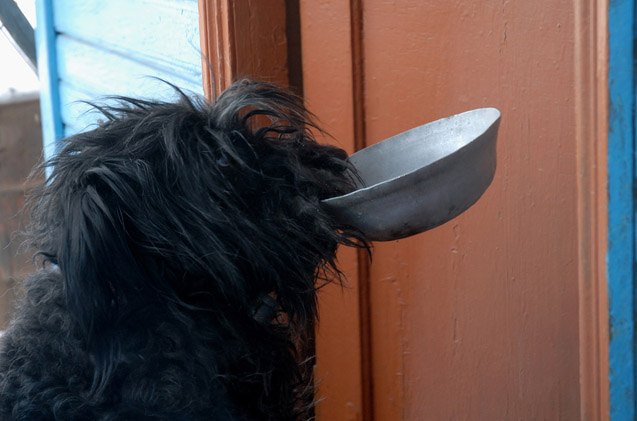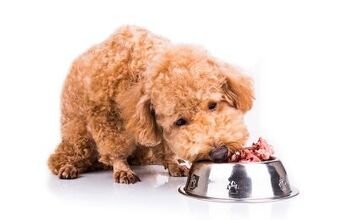Benefits Of A Grain-Free Diet For Your Dog

A grain-free diet for dogs is very much in vogue right now. However, it might not the cure-all that some people are claiming it is. While some dogs thrive on a grain-free diet, it’s not inherently healthier than a diet that does include grains. Every dog is an individual, so what’s best for one dog might not be good for others. That being said, it’s worth exploring the supposed benefits of a grain-free diet and whether this kind of food might be more suitable for your pooch.
Related: Grain-Free Coconut and Banana Dog Treat Recipe
What Are the Supposed Benefits of a Grain-Free Diet?
Advocates of a grain-free diet for dogs cite a long list of benefits. It’s worth noting that these benefits haven’t been scientifically proven, so take them with a grain of salt. Reputed benefits include:
- Fewer allergies
- Improved digestion
- Better breath
- Increased energy
- Healthier coat
- Less shedding
- Decreased weight in overweight dogs
- Fewer/smaller stools
Do Some Dogs Benefit From a Grain-Free Diet?
Some dogs definitely benefit from a grain-free diet. Those dogs who do see a vast improvement in their health after switching to a grain-free diet are likely to be those dogs who are allergic or intolerant to one or more grain. Grains such as gluten and corn are fairly common allergens, so if a dog did have an undiagnosed intolerance or allergy to one of these ingredients, then he would certainly be better off following a grain-free diet.
Related: How To Choose the Best Dog Food For Your Dog
Do All Dogs Benefit From a Grain-Free Diet?
No, not every dog is better off on a grain-free diet. The gluten in wheat and other grains is actually a great source of protein. While some advocates of a grain-free diet claim that dogs aren’t biologically designed to eat grains, this simply isn’t true. Although dogs are descended from carnivorous wolves, scientists have identified 10 key points that show domesticated dogs are better able to consume and digest starch and fat in comparison to the wolf. In fact, it’s hypothesized that early ancestors of present-day dogs ate wheat and other crops discarded by early farmers. What’s more, a grain-free diet tends to be much higher in protein and may actually be unsuitable for senior dogs and dogs with certain medical conditions.
The Quality Issue
There’s one key reason why many dog owners might see improvement in their dog’s health after switching to a grain-free diet, and it’s nothing to do with grains. The majority of grain-free dog food is made by premium brands and contains high-quality ingredients. If a dog owner has switched their pooch from a basic- or low-quality food to a high-quality, grain-free food, the health improvements probably have much more to with the improved quality of the ingredients than the absence of grain.
Should I Switch My Dog to a Grain-Free Diet?
In most cases, it won’t hurt to switch your dog to a grain-free diet, but it certainly isn’t necessary in all cases. If your dog is suffering from any of the symptoms of a food allergy – such as diarrhea, unexplained rashes or weight loss – it’s possible that a grain-free diet might help (although you should also consult your vet about such ailments). However, if your dog is perfectly healthy on a high-quality food that contains grains, then it’s fine to keep his diet as it is.

Lauren Corona is a freelance writer from merry old England. She specializes in writing about dogs and other critters. Lauren lives near Oxford, with her gorgeous Doberman, Nola. When she's not tapping away at the keyboard, you'll find her walking in the woods with Nola-dog, raising money for the Oxfordshire Animal Sanctuary, cooking vegan food, making zines and writing about herself in the third person.
More by Lauren Corona























